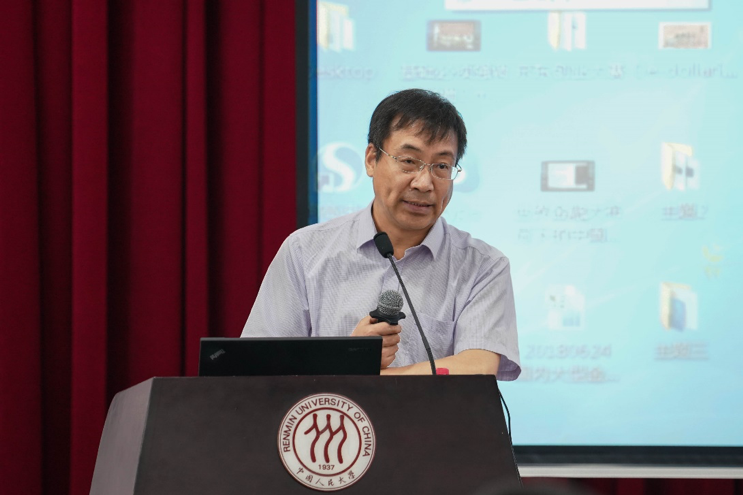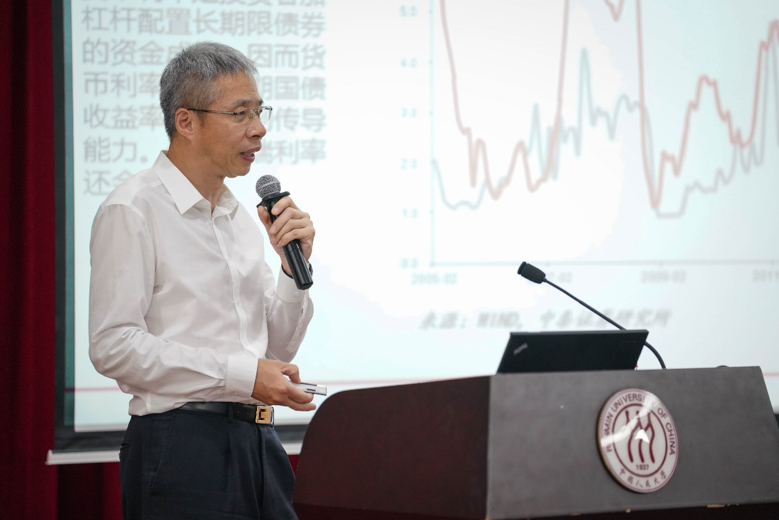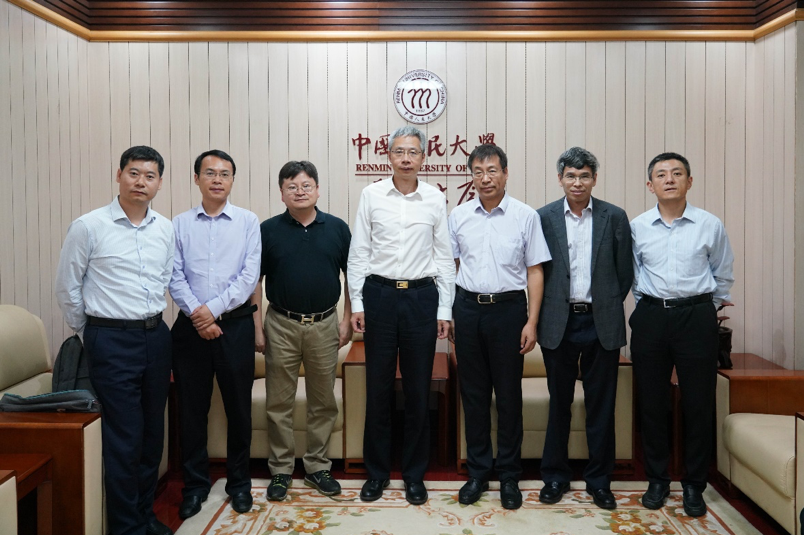Macro-Finance Salon (No.129): China Economy Outlook and Policy Choice under the Global Economic Turmoil
2019-09-23 IMI Mr. Li Xunlei first analyzed China’s current economic situation from long-term and short-term perspectives. He believes that China’s economy goes upward in the long run but goes downward in the short run. The main pressure stems from aging population, reducing population mobility, and decreasing urbanization rate. At the same time, the large number of over-capacity shows that China’s economy has entered a stock-based stage. Then he analyzed the current global economic situation, pointing out that the world has entered an era of low growth and high instability. China’s economic downturn has weakened global dynamics and its stock-based economy has increased global turmoil and reduced risk preference. Next, Li analyzed China’s current policy logic and pointed out two problems in China’s current economy: “aging before getting rich” and “getting into debt before being rich”. The future focus should be on solving stock problems and increasing leverage in fiscal policy. Li Xunlei also mentioned that the current clear policy context, and the biggest uncertainty lies in the operation. Finally, Li Xunlei put forward two suggestions. In asset allocation, we should consider reducing the holdings and not allocate the incremental part to real estate. In terms of interest rate, it should be maintained at relatively low levels to keep society from outbreak of systemic risks.
Mr. Li Xunlei first analyzed China’s current economic situation from long-term and short-term perspectives. He believes that China’s economy goes upward in the long run but goes downward in the short run. The main pressure stems from aging population, reducing population mobility, and decreasing urbanization rate. At the same time, the large number of over-capacity shows that China’s economy has entered a stock-based stage. Then he analyzed the current global economic situation, pointing out that the world has entered an era of low growth and high instability. China’s economic downturn has weakened global dynamics and its stock-based economy has increased global turmoil and reduced risk preference. Next, Li analyzed China’s current policy logic and pointed out two problems in China’s current economy: “aging before getting rich” and “getting into debt before being rich”. The future focus should be on solving stock problems and increasing leverage in fiscal policy. Li Xunlei also mentioned that the current clear policy context, and the biggest uncertainty lies in the operation. Finally, Li Xunlei put forward two suggestions. In asset allocation, we should consider reducing the holdings and not allocate the incremental part to real estate. In terms of interest rate, it should be maintained at relatively low levels to keep society from outbreak of systemic risks.
 In the discussion session, Chen Weidong stresses that if China wants to get out of the middle-income trap under the current circumstance, its focus should be on the improvement of industrial development and industrial system. Guan Tao believes that in the global economy, monetary policy cannot solve the impact of trade conflicts, and negative interest rates will make the financial system unable to function properly. In terms of China's economy, we should calmly analyze the challenges both inside and outside China, and adapt ourselves to the new period of medium to high growth. Qu Fengjie puts forward three concerns about China's long-term economic growth from China's backwardness, external environment and TFP. Song Yongming points out that the next step of China's economic development lies in two aspects: supply and demand. Xue Jun believes that China's economic growth from the past to the next forty years depends on endogenous growth, mainly in China's population, urbanization, technological and mode innovation, regional economy and opening up. Zhang Jiqiang believes that China’s society has multiple dimensions, with its entry into innovation and large population, which do not exist in other countries. He thinks that the bond market should focus on two aspects: asset allocation and credit sinking. Zhao Xiaoqiang puts forward some suggestions on policy from the perspective of market: enhancing the predictability of policy and making it more market-oriented. He also raises the issue of local debt in the bond market.
In the discussion session, Chen Weidong stresses that if China wants to get out of the middle-income trap under the current circumstance, its focus should be on the improvement of industrial development and industrial system. Guan Tao believes that in the global economy, monetary policy cannot solve the impact of trade conflicts, and negative interest rates will make the financial system unable to function properly. In terms of China's economy, we should calmly analyze the challenges both inside and outside China, and adapt ourselves to the new period of medium to high growth. Qu Fengjie puts forward three concerns about China's long-term economic growth from China's backwardness, external environment and TFP. Song Yongming points out that the next step of China's economic development lies in two aspects: supply and demand. Xue Jun believes that China's economic growth from the past to the next forty years depends on endogenous growth, mainly in China's population, urbanization, technological and mode innovation, regional economy and opening up. Zhang Jiqiang believes that China’s society has multiple dimensions, with its entry into innovation and large population, which do not exist in other countries. He thinks that the bond market should focus on two aspects: asset allocation and credit sinking. Zhao Xiaoqiang puts forward some suggestions on policy from the perspective of market: enhancing the predictability of policy and making it more market-oriented. He also raises the issue of local debt in the bond market.

